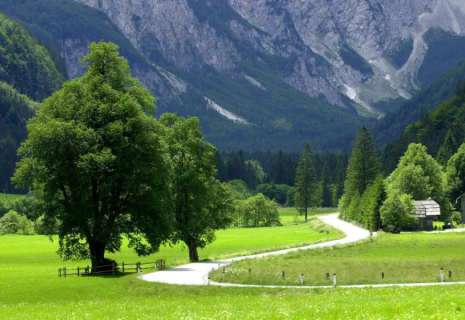
Wine traditions in North Macedonia
North Macedonia, a small yet historically rich country located in the heart of the Balkan Peninsula, has a vibrant wine tradition that dates back thousands of years. This land, blessed with a diverse topography and a climate conducive to viticulture, boasts a winemaking heritage that intertwines with the cultural and historical fabric of its people. From ancient Thracian settlers to modern winemakers, the story of wine in North Macedonia is one of resilience, tradition, and passion, CE Report reports.
Ancient Roots
The history of winemaking in North Macedonia can be traced back to antiquity. Archaeological evidence suggests that wine production in the region began around 4000 BC. The Thracians, known for their winemaking skills, inhabited this area and left behind a legacy that still influences the region today. Ancient Greeks, Romans, and later Byzantines recognized the potential of the local terroir and contributed to the evolution of viticulture in the region.
Historically, wine was not merely a beverage in North Macedonia; it was a fundamental part of religious and social ceremonies. The ancient Macedonians honored Dionysus, the god of wine, through festivities that celebrated the harvest and the joys of life. This reverence for wine persists in today’s cultural practices, where local traditions are deeply intertwined with viticulture.
The Terroir of North Macedonia
North Macedonia’s varied landscape—from rolling hills to fertile plains—provides an ideal environment for grape cultivation. The country enjoys a Mediterranean climate, characterized by hot summers and mild winters, along with abundant sunshine. The diverse soil types, including limestone, clay, and volcanic soils, contribute to the distinctive flavors and characteristics of the wines produced here.
Key wine regions in North Macedonia include Tikveš, Strumica, and Vardar Valley. Each region boasts its own unique grape varieties and winemaking styles. Tikveš, in particular, is the most famous wine-producing area, known for its high-quality red and white wines.
Indigenous Grape Varieties
North Macedonia is home to several indigenous grape varieties that embody the country’s winemaking identity. Among the most noteworthy are:
-
Vranec: A medium-bodied red wine with rich flavors of dark fruit, spice, and a hint of earthiness. Vranec is often considered the flagship grape of North Macedonia and is widely associated with the Tikveš region.
-
Kratosija: An ancient red varietal, Kratosija is akin to the Zinfandel grape and produces wines with ripe fruit flavors and a velvety finish. It is often used in blends or as a varietal wine.
-
Sauvignon Blanc: Grown in the cooler regions, this white grape can produce crisp and aromatic wines, showcasing vibrant acidity and notes of green herbs, citrus, and tropical fruit.
-
Tamjanika: A distinct aromatic white grape, Tamjanika is known for its fragrant bouquet reminiscent of muscat. It is often enjoyed fresh and is a popular choice for summer wines.
Traditional Winemaking Practices
While modern techniques have found their way into North Macedonia’s wineries, many producers continue to embrace traditional winemaking methods. Hand-harvesting of grapes, minimal intervention, and the use of local oak barrels are hallmarks of the craftsmanship that define North Macedonian wines.
Wine production is often a family affair, with generations passing down knowledge and practices. The traditional method of fermentation in old clay vessels, known as "qvevri," is experiencing a renaissance as winemakers seek to honor their heritage and create wines with a distinctive sense of place.
Cultural Significance and Celebrations
Wine is deeply woven into the cultural fabric of North Macedonia, serving as a symbol of hospitality and community. The annual wine festivals, such as the Tikveš Wine Harvest Festival, celebrate the grape harvest and showcase local wines. These events offer an opportunity for winemakers to share their products, foster connections, and engage the community. Traditional music, dance, and cuisine accompany these festivities, enriching the experience and celebrating the country’s cultural heritage.
Family gatherings, religious celebrations, and social events are often incomplete without a bottle of local wine. The age-old proverb, "Where there's wine, there's life," encapsulates the significance of wine in the everyday lives of North Macedonians.
Conclusion
Wine traditions in North Macedonia are a testament to the country’s rich history and the enduring passion of its people for winemaking. As the country continues to gain recognition on the global wine stage, it remains committed to preserving its heritage while exploring new horizons. From ancient Thracian roots to contemporary innovations, North Macedonia’s wine culture is a beautiful blend of tradition and modernity, inviting wine lovers from around the world to savor its unique offerings.
























